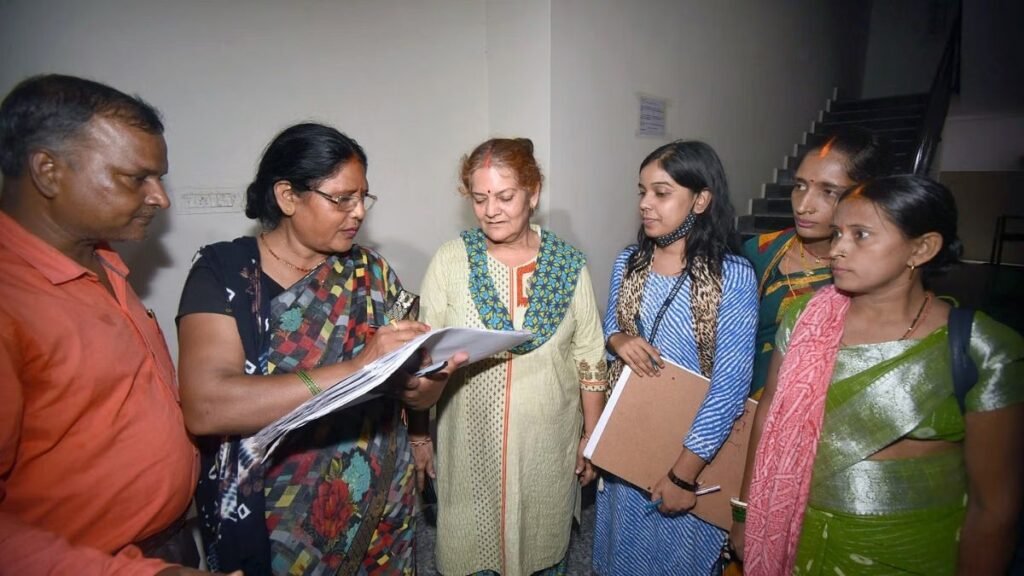Andhra Pradesh Initiates Caste Census: Second Only to Bihar
In a significant move, Andhra Pradesh has recently undertaken the initiative to conduct a caste census, following the footsteps of Bihar. This step holds immense importance for aspirants preparing for government exams, particularly those targeting positions in education, law enforcement, banking, railways, defense, and civil services such as PSCS to IAS. Let’s delve into the details of this development.
The Andhra Pradesh government’s decision to conduct a caste census comes as a crucial step in understanding the socio-economic landscape of the state. This move mirrors the one taken by Bihar, emphasizing the need for accurate and up-to-date data on caste demographics.
The decision to initiate a caste census in Andhra Pradesh involves collecting data on the population’s caste composition. This comprehensive survey aims to provide a nuanced understanding of social dynamics, enabling the government to formulate targeted policies for the welfare and upliftment of marginalized communities.

Why this News is Important
The decision by the Andhra Pradesh government to conduct a caste census signifies a policy shift aimed at obtaining accurate and detailed demographic data. This move reflects a commitment to evidence-based policymaking.
The caste census holds crucial implications for social and economic policies. Accurate data on caste demographics is instrumental in identifying and addressing disparities, leading to more targeted and effective welfare measures.
Historical Context
The decision by Andhra Pradesh to initiate a caste census is not without precedent. Bihar took a pioneering step in this direction, conducting a similar census to gather detailed information on caste demographics. Andhra Pradesh’s move can be seen as following this trend.
Census exercises in India have a historical context, dating back to the colonial era. The first caste-based census was conducted in 1931. Since then, periodic efforts have been made to gather comprehensive data on various demographic parameters, including caste.
5 Key Takeaways from Andhra Pradesh’s Caste Census Initiative
| Serial Number | Key Takeaway |
|---|---|
| 1. | Policy Shift: The initiation of a caste census reflects a significant policy shift by the Andhra Pradesh government towards evidence-based governance. |
| 2. | Socio-economic Implications: The census aims to provide detailed demographic data, essential for formulating targeted social and economic policies, particularly for marginalized communities. |
| 3. | Exam Relevance: Aspirants should be aware of this development as it is likely to be a recurring topic in competitive exams, testing their knowledge of current affairs and government initiatives. |
| 4. | Debates and Controversies: The initiative has sparked debates around potential misuse and reinforcement of stereotypes. Aspirants should be prepared to discuss the pros and cons of such policies. |
| 5. | Historical Context: Understanding the historical background, especially the precedent set by Bihar, adds depth to the aspirants’ knowledge about the evolving nature of demographic data collection in India. |
Important FAQs for Students from this News
Q1: Why is Andhra Pradesh conducting a caste census?
Answer: Andhra Pradesh is conducting a caste census to gather accurate and detailed demographic data, enabling the government to formulate targeted social and economic policies, particularly for marginalized communities.
Q2: How does this news impact aspirants preparing for government exams?
Answer: Aspirants should stay updated on policy decisions like the caste census, as it is likely to be a recurring topic in competitive exams, testing their knowledge of current affairs and government initiatives.
Q3: What challenges and controversies surround the caste census initiative?
Answer: Critics argue about the potential misuse of caste-based data and the risk of reinforcing stereotypes, leading to debates and controversies.
Q4: What is the historical context of caste-based census in India?
Answer: The caste census initiative follows a precedent set by Bihar. Historically, India has conducted census exercises dating back to the colonial era, with the first caste-based census in 1931.
Q5: How does this news connect to the broader history of demographic data collection in India?
Answer: The news connects to the broader history of demographic data collection in India, emphasizing the evolving nature of census exercises and the periodic efforts to gather comprehensive data on various parameters.
Some Important Current Affairs Links
















